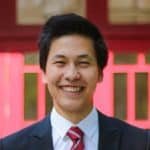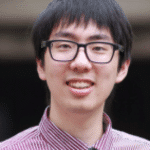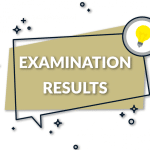Math Tuition In Singapore
Annually, our tutors always help students of all abilities to achieve their academic goals
About 35% of our clients are MOE teachers and university/NIE lecturers. They trust what our tutors teach their own children.
The proven expertise of our carefully-chosen star tutors makes it possible for students' grades to improve between 10 to 30 marks in 2 semesters.
Our 5 co-founders are former senior teachers/HODs from Singapore's top primary/secondary schools and junior college.
We have over 33,000 active and experienced tuition teachers, and will show you tutor profiles within 6 hours.
Math Tuition In Singapore | Add Maths O Level | Math Tutor | O Levels Maths | Math Tutor Singapore
Since 2011, Professional Tutors Singapore has been the consistent leader in the education industry because of the quality of our tutors.
Every year, the syllabus gets more difficult, and the exam requirements are increasingly more demanding.
Competition to get into the good classes and universities is very intense.
Stress levels are sometimes overwhelming, and parents are worried that their children will be left behind or excluded once they get erratic grades.
Professional Tutors has established a very strong reputation for our ability to attract the best and most successful tuition teachers in Singapore to be part of our team.
Outstanding, high-quality and credible tutors make it possible for our students to receive the reliable and effective academic help that they need, in order to perform much better.
Our 33,000 qualified tutors have 2 clear objectives:
1. Dependably and systematically prepare you for your next assessment/exam
2. Quickly and competently help you score maximum marks for each exam section
Take Control Of Your Grades Today
Primary School Tuition
Secondary School Tuition
Integrated Programme Tuition
International Baccalaureate Tuition
Junior College Tuition
Polytechnic Tuition
University Modules Tuition
Math Tuition In Singapore | Add Maths O Level | Math Tutor | O Levels Maths | Math Tutor Singapore
Hire Singapore's Most Successful Tuition Teachers
Math Tuition In Singapore | Add Maths O Level | Math Tutor | O Levels Maths | Math Tutor Singapore
Tutors: Please ensure that you have registered at: https://professional-tutors.com/tuition-jobs-better-assignments-fast/
We are not able to accept any tutor registrations through this Hire Tutors Form. Thank you.
Math Tuition In Singapore | Add Maths O Level | Math Tutor | O Levels Maths | Math Tutor Singapore
We are confident that you will succeed








Singapore's largest team of qualified tutors
- Choose from MOE teachers, experienced tuition teachers with PhD/Master’s/Bachelor’s, or who are proficient university undergraduates
- Whether your dream is to start your own business, or to work for a prestigious MNC – the most important and useful immediate objective would be to receive the best academic guidance now, so that your grades can open many more important doors for you
- Annually, our tutors always help students of all abilities to achieve their academic goals
Satisfied clients every year since 2011
- Students benefit from our experience, quality tuition teachers, track record, and superior reputation
- Within 6 hours, our 20+ resourceful tuition coordinators (all of them have graduated from NUS, NTU and SMU) ensure that you can easily choose and hire the ideal tutor that fits your criteria
- 100% successful matches. Every time
- No agency fees. You pay only for lessons conducted
Math Tuition In Singapore | Add Maths O Level | Math Tutor | O Levels Maths | Math Tutor Singapore
Proven methods to score higher grades
- Our private tutors show you the important patterns and links in each chapter, and how to answer challenging application questions
- We teach you why and how to focus on the most crucial aspects of textbook content
- You will learn correct answering techniques so that your responses are specific and never off-point
- Practice worksheets/past exams with an acknowledged expert, so that your mistakes can be quickly and patiently corrected
Latest MOE syllabus, and exam marking scheme requirements
Our experienced and committed tutors will help you:
- Answer difficult exam questions
- Correctly prepare for your homework/projects
- Understand and revise every chapter
- Learn ahead of the syllabus
- Identify, avoid and prevent careless mistakes
Math Tuition In Singapore | Add Maths O Level | Math Tutor | O Levels Maths | Math Tutor Singapore
We have the education industry's most admired tutor database
- Tutors know that we are very careful and highly selective during the matching process
- We do not accept under-performing tutors in our team/database
- Professional Tutors therefore attracts tuition teachers who have already acquired and maintained an impressive track record of helping their students’ grades consistently and substantially improve
Our 5 co-founders collectively have over 70 years of experience in the field of education
- Also, our Advisory Panel comprises former MOE school principals, subject Heads of Department, and senior teachers
- This ensures that our tutors are firmly on track to teach the latest MOE syllabus, and are familiar with the exam requirements and marking schemes, as well as the requisite answering techniques
Math Tuition In Singapore | Add Maths O Level | Math Tutor | O Levels Maths | Math Tutor Singapore
Critical thinking is very important to obtaining strong overall analytical skills.
Effective critical thinkers are able to think clearly and rationally and understand the logical relations between data points and ideas.
Data and content form the core of the essence of what you need to learn for your exams.
You need to identify patterns in the data and content that are given in your text books, and also to correctly convey your analysis of the data to exam markers, in order to earn crucial exam marks.
In every exam/assessment that we take from P1 to post-doctoral level – and especially once we start working after graduation – we need to objectively analyze complex problems to form a judgment and the best response to make.
When you want to arrive at rational answers, critical thinking is a very important skill to master.
There are a few different types of logical thinking, including:
- Inference: Assuming an answer based on facts we already know
- Inductive reasoning: Observing a specific pattern, then making a general conclusion
- Deductive reasoning: Observing a general premise, then applying it to a specific situation
Are you an analytical thinker?
An analytical thinker is a person driven by curiosity to get to the bottom of things and is then able to solve a problem or find an answer.
They do not assume anything about the problem at hand.
Instead, they begin by questioning everything about the issue.
You can start to develop these good analytical thinking habits listed below (some, but not all of these qualities may be found in a person with an analytical nature):
- Search for information and evidence.
- Analytical thinkers will find and evaluate every bit of information they can accumulate on a particular subject or challenge before arriving at a decision
- Develop logical and systematic processes.
- Rarely will an analytical thinker be swayed by emotion.
- Usually, this individual will use linear thinking to arrive at a sound, sensible, well-thought-out conclusion.
- Logical thinkers tend to embrace structure and rules.
- Most analytical thinkers like to work in a well-organized way.
- When you are organized, you will be thorough in your work and never miss out on important information that needs to be reviewed and considered.
- For example, if you develop a keen interest in an area, you’ll make sure you learn as much as possible about that field and become an expert.
- This is the kind of professionalism and attention to detail that businesses (and your exam markers) are looking out for.
- Start having routines in your daily life.
- Analytical thinkers enjoy routines and have steady, established habits.
- They prefer to know what and when something is going to happen. Daily life is often based around routines.
- They have an innate ability to concentrate, which means they usually like to work independently or in small teams.
- Develop sharp memory skills.
- It is common for an analytical thinker to thrive on learning new information – and once learned, that information is never forgotten.
- Analytical thinkers have exceptional memories, although they can opt to forget information that they do not consider critical to solving their current problem.
- Analytical thinkers can also be curious and observant.
- Get in the habit of asking “how?” and “why?”.
- They tend to be modest: it’s difficult to be curious and observant when one is arrogant and thinks that he/she already knows everything.
- You can consciously observe and analyze your surroundings.
- When you are highly perceptive, your mind is geared towards taking a bird’s eye view of things which enables you to consider the whole picture.
- This also means that you’ll be able to visualize how parts of a project fit together.
- You’ll be in a better position to foresee and predict how minor changes and adjustments can affect the outcome and make astute decisions.
- Get in the habit of forcing yourself to analyze seemingly obvious truths about the world.
- When you are always prepared and can handle risk well, it becomes highly unlikely that you will be shocked when faced with problematic situations.
- Your preparedness and risk management skills will help you ensure that you have predicted any potential threats to being able to answer difficult exam questions, and are already prepared with a plan of action.
- Analytical thinkers are known for spotting problems from far away, and being ready to meet challenges head-on.
If you can identify with the qualities above and prefer strategy and creativity over socializing and networking, chances are you’re an analytical thinker.
Whether you struggle with analytical thinking or seem to have natural analytical abilities, you can always improve your skills.
Visualization, creativity, and having a growth mindset – the ability to embrace new technologies and upgrade skills – are key to the analytical thinker’s success jobs that pay high salaries.
Analytical skills are used when detecting patterns and trends, brainstorming new ideas, observing data, collecting data, interpreting data, integrating new information, synthesizing information, and making decisions on what solutions to implement in a productive manner.
Analytical skills refer to a person’s ability to assess relevant information and facts, identify and define complex problems, investigate and extract crucial information from data, and find the best workable solutions to these problems.
According to LinkedIn, they are one of the top 10 most in-demand soft skills that employers always look for.
Analytical skills are highly transferable, making the analytical thinker an ideal fit for a variety of career fields.
The analytical thinker’s breadth and versatility of skills are the primary reason why employers look for this coveted trait.
Analytical and critical thinking skills allow employees to adapt and respond to new obstacles.
Company success often depends on employees who can efficiently and effectively analyze the vast amounts of data and information in the digital age.
Logical decision makers use fact-based, hard evidence to support their decisions and plans.
They arrive at their decisions after factoring every aspect of a situation and utilizing the best means of achieving the most optimal solution.
This results in successful outcomes because of the quality of decisions that they are able to make.
Companies that employ skilled analytical thinkers are better able to adapt and respond to new market conditions as well.
Accordingly, analytical skills show up frequently as a required quality in job descriptions.
For example, a sales job description may list qualitative analysis or predictive analysis as requirements.
Developing strong analytical skills is therefore vital to anyone who wants to succeed in their school/national exams and then when they start their careers.
You have to write analytically when you answer exam questions.
Analytical essays (even if they are only a few sentences long) provide a way to share your insights that provide substantive analysis of a topic.
A good analytical essay can explain and contextualize basic information for the exam marker.
Analytical responses serve two purposes: one for the reader and one for the writer.
Your exam marker wants to know how you have grown as a writer and thinker.
Your ability to write analytically will convince the exam marker that you have a strong grasp over the content that the question is testing you on.
What sets an analytical essay apart from a descriptive answer is the author’s point of view.
Analytical essays present an argument supported by evidence, whereas descriptive essays tend to be book summaries, film synopses, descriptive articles, and informative pamphlets that do not include analysis or opinion.
Similar to a good analytical essay, a strong descriptive essay will highlight its main points, organize given topics into body paragraphs, and use logical transitions.
Ultimately, however, descriptive essays summarize facts, while analytical essays delve into interpretation.
The best analytical essays offer a clear point of view, are well organized around a main idea, address opposing arguments, and are comprehensively supported by primary and secondary sources.
- You should start by choosing a point of view.
- No matter what you choose as your central point of view, you must be able to anchor your entire analytical essay around a singular thesis statement/point of view.
- Your introductory paragraph has to state your point of view.
- An excellent introduction will grasp your reader’s interest. It is therefore important that you take extra care in your opening paragraph.
- Good ways to start your essay would with a hook such as a bold statement.
- You should then provide a broad outline that addresses questions that the exam questions requires you to tackle.
- A good introduction concludes with a thesis statement that serves as the compass (ie “GPS”) for the entire essay.
- You then need to carefully organize the body of your essay.
- After your introductory paragraph, divide your essay into body paragraphs that dig deep into specific topics.
- All body paragraphs should serve the main goal of supporting your thesis statement, either by providing background information, delving into details, or providing contrasting viewpoints that each substantiate themselves.
- The number of body paragraphs will vary depending on the scope and length of your essay that the exam questions require from you.
- The structure of your essay is just as important as the subject of your essay, so do take the time to strategically plan each body paragraph.
- Your topic sentences must be clearly crafted.
- Each main body paragraph should begin with a topic sentence that both introduces the topic of the that specific paragraph, and then ties it to your main thesis.
- Populate your essay with evidence that is directly related to the exam question. Do not ramble or go off-point.
- The main body of the essay should be filled with a mixture of substance and analysis.
- You can convince your exam marker to give you higher marks only when you are able to provide solid evidence to back up your statements and point of view.
- Therefore, you must support the main points of your analysis with evidence taken from your textbooks or the research that you had previously conducted on this subject.
- You can make an argument stronger by acknowledging another point of view.
- Even if you do not agree with a critical perspective, you can still use a body paragraph to describe that point of view.
- You can then refute that argument with additional evidence and reasoning, strengthening your thesis/position on that issue.
- The summary is also very important.
- Wrap up your analytical essay with a concluding paragraph that recaps your argument.
- The concluding paragraph is not the place to introduce new evidence.
- Rather, it is the ribbon that you wrap around your entire essay, reminding your reader of your most important points and leaving them with some final convincing words for consideration of your point of view.
Perseverance means continuously working on a task despite having obstacles.
It means being hardworking and finishing what is started, even when barriers and problems arise.
Perseverance is an essential leadership skill.
It is more than just not giving up.
When you’re in a leadership role, perseverance is more of a problem-solving process that includes encountering a challenge, understanding why the challenge exists, finding a way to overcome the challenge and, above all, learning from the entire experience.
It is often what separates those that achieve success, and prevents disappointment for themselves and their team.
The satisfaction received from completing tasks and projects is very important to those who are able and want to persevere.
It means the willpower to work hard regardless of any obstacles, to be firm on achieving, and remaining consistent.
Sometimes we are unable to complete a task or get what we want when things don’t go our way.
However, by persevering, we can have better prospects of being successful.
Everyone who takes an idea and makes it into something valuable does it through hard work.
Tied very closely to hard work is perseverance, continuing forward without regard to discouragement, opposition, hurdles, or memories of previous failure.
Ultimately, perseverance is about being confident in your abilities and trusting that you’ll find a way through, if you persist.
Don’t be afraid to fail.
Perseverance comes from failing and getting back up.
Without failure, we cannot become resilient.
Therefore, we have to think of failure as a lesson, rather than a setback.
We can learn so much from failure that changing our attitude toward it can have amazing implications for our lives.
When we aim to be 1% better every day, we develop a growth mindset that is a great way to increase perseverance and motivation.
These are skills like any other types of talents that you want to develop, and try to improve upon them just 1% every day.
Keeping this concept in mind throughout the day is an excellent way to motivate ourselves.
Have you heard of the 40% Rule?
This Rule means that if you manage to complete 40% of the task, your likelihood of quitting drops dramatically.
So, work toward completing 40% of the task. Then the rest of the 60% is not that difficult/intimidating to complete.
Keep your goals in mind.
When we make mistakes or fail, many people will be tempted to give up altogether.
If we want to persevere, we need to keep our goals in mind at all times.
Start by writing down your short and long-term goals and place them somewhere that’s easy to access.
Ask yourself why you have chosen and then embarked on a certain goal.
Reflecting on that reminds us that the journey is worth our time.
Then, whenever there’s any discouraging event or comment, take a look at that list to inspire you and keep you moving forward.
Success can be a long and tough journey.
We should give ourselves rewards or encouragement along the way to the major goals.
The rewards can be anything from having a nice lunch, extra hours spent at the park, or a weekend break.
The rewards will keep reminding you of the progress you have made, and will provide continued motivation to persevere through difficult times.
The people who become successful are not the ones who are the most talented.
It’s the ones with the most endurance.
Whether the skill of perseverance comes easily to you or not, the best part is that there are so many ways for us to develop our mental resilience, which then helps our grades get better.
Self-motivation is the force that keeps pushing us to go on – it’s our internal drive to achieve, produce, develop, and keep moving forward.
When you think you’re ready to quit something, or you just don’t know how to start, your self-motivation is what pushes you to go on.
By setting a goal – anything from scoring 10 more marks for Maths, avoiding careless mistakes, or paying more attention in class – you are taking a big step toward improving your life.
However, following through to achieve what we’ve set out to accomplish can be challenging, especially on those days when our energy levels are low and we just don’t feel like putting in the work.
We all lose motivation from time to time.
When you’re feeling unmotivated, try one of these science-backed strategies to get yourself back on track toward your goal.
- Put your goal on the calendar and give yourself target dates. Whatever it is you’re aiming to accomplish, put the timelines on the calendar.
- If your goal lacks this structure, you can include it in your calendar by deciding on a date by which you could realistically achieve your goal.
- Having a target date not only helps you stay motivated, it also helps you track your progress – you always know how much further you have to go and how much you have already achieved.
- You can also draw a progress bar on a piece of paper that you can stick in front of your study area.
- Look at it regularly and fill it in as you get closer to your goal.
- This can have a big impact on your performance and determination to succeed.
- Set small goals that lead toward the main goal, in order to build momentum.
- Getting started is often the hardest part on low-motivation days, and starting is much easier when the task is small. Begin with five minutes of study first, then work your way up to an hour a day etc.
- Track your progress. Not every day will go exactly as planned, and that’s okay.
- We can’t predict everything that could happen, but we can predict some obstacles that are likely to happen from time to time based on our unique circumstances.
- Then when that obstacle pops up, instead of losing motivation and feeling deflated, you have a plan in place to keep the momentum going.
- Practice gratitude for every tiny step that you are making toward your small goals and eventual big goals.
- Research shows that frequent small successes can build a momentum that can in turn drive long-term success, especially early in the process.
- Whatever your big goal may be, start by breaking it down into smaller chunks, and it will be easier to achieve most or all of them.
- Reward yourself for the little wins as well as the big ones. Rewards can improve motivation and performance.
- Rewarding yourself for reaching small milestones and completing big goals could boost your interest and enjoyment in the work you’re doing.
- Spend a few minutes making your own reward list so that you’re ready to celebrate your wins, big and small.
- Improve your mood and mental health.
- A good mood has been linked to increased productivity, and improvement in both quality and quantity of our work.
- This doesn’t mean that you have to be positive all the time – being chirpy every minute of every day is not realistic.
- But if you’re feeling sluggish about working toward your goal, a quick mood lift could be enough to get you started.
- Having a change of your environment can help you approach your task with a fresh perspective (and a new sense of motivation).
- This is called the novelty effect – a short-term boost that comes from altering your environment or routine.
- Spend some time in nature (or at least get some sunlight while taking a nice walk around the neighbourhood).
- Try a different exercise routine.
- Watch funny videos on TikTok or YouTube.
Good ways to further motivate yourself would be to ask yourself:
- Why is this goal important to you?
- Why is that reason important to you?
Keep thinking about these until you get to your ultimate “why” – which is the core value that’s driving your goal.
What would it feel like to achieve your goal?
You know that it will feel great, and that promise of your happiness and sense of achievement will keep you focused on wanting to continue to do well.
Take control of your Math grades today
33,000 experienced private tutors
MOE teachers, tutors with proven track records,
PhD/Master's/Post-Doctoral tutors,
Graduated/Undergraduate dependable tutors
Mr CTA has 6 years of Math tuition experience. He has a Bachelor’s Mathematical and Computer Sciences from NTU. Mr CTA taught at a tuition centre for 3 years. His private tuition students attended Dazhong Primary School, Henry Park Primary School, Jurongville Secondary School, Anglican High School, Jurong Pioneer Junior College, and River Valley High School.
Ms KLP has 12 years of Math tuition experience. She is NIE-trained, and taught at leading MOE schools for 9 years. Ms KLP has a Bachelor’s in Data Science and Artificial Intelligence from NTU (Honours). Her private tuition students attended Cedar Girls’ Secondary School Integrated Programme, Loyang View Secondary School, Anglo-Chinese School (Independent), Punggol Secondary School, Teck Whye Secondary School, and Victoria School.
Ms NRS has 8 years of Math tuition experience. She has a PhD in Mathematics from the University of Cambridge. Ms NRS’s Bachelor’s in Mathematics was from NUS (First Class Honours). Ms NRS was an MOE relief teacher for 3 years. Her home tuition students attended Pei Chun Public School, Maha Bodhi School, Catholic High School Integrated Programme, CHIJ Secondary (Toa Payoh), Eunoia Junior College, and Anglo-Chinese Junior College.
Mr GHS has 7 years of Math tuition experience. He has a Bachelor’s in Mathematics from NUS (2nd Upper Class Honours). Mr GHS was a contract teacher at one of Singapore’s top schools for 2 years. His home tuition students attended Raffles Girls’ Primary School, Keming Primary School, Hua Yi Secondary School, Maris Stella High School, Jurong Pioneer Junior College, and National Junior College.
Ms MK has 10 years of Math tuition experience. She has a PhD in Mathematics from the London School of Economics and a Bachelor’s in Mathematics from NUS (First Class Honours). Her private tuition students attended National Junior College, Raffles Institution, Victoria Junior College, Yishun Innova Junior College, Dunman High School, and Anglo-Chinese Junior College.
Mr TP has 15 years of Math tuition experience. He is NIE-trained and taught at MOE schools for 12 years. Mr TP has a Bachelor’s in Applied Mathematics from NUS (Honours). His private tuition students attended Cedar Primary School, Fuhua Primary School, Nanyang Primary School, Ai Tong School, De La Salle School, and St Anthony’s Canossian Primary School.
Hire the best Math experts to help you succeed
A committed and skillful Math home tutor can make an important difference in how you understand the syllabus, and therefore achieve gains of 10 to 30 marks within 2 semesters
Ms SYH has 8 years of Math tuition experience. She has a Bachelor’s in Mathematics from NUS. Ms SYH was an MOE contract teacher for 3 years. Her private tuition students attended North View Primary School, Pei Tong Primary School, Qifa Primary School, Bartley Secondary School, Kent Ridge Secondary School, and Nan Hua High School.
Ms CCF has 9 years of Math tuition experience. She is NIE-trained and taught at MOE schools for 5 years. Ms CCF has Bachelor’s in Mathematical Sciences with Minor in Finance from NTU. Ms CCF’s home tuition students attended Greenridge Secondary School, Montfort Secondary School, Admiralty Secondary School, Xinmin Secondary School, CHIJ St Joseph’s Convent, and St Andrew’s Secondary School.
Ms JT has 14 years of Math tuition experience. She was the Head of Mathematics at a group of tuition centres where she taught for 7 years. Ms JT has a Master’s in Applied Mathematics at Oxford University. Her Bachelor’s in Mathematical Sciences was from NTU (First Class Honours). Ms JT’s private tuition students attended Beacon Primary School, Maha Bodhi School, Tanglin Secondary School, Dunman High School Integrated Programme, Anderson Serangoon Junior College, and Eunoia Junior College.
Mr GPT has 3 years of Math tuition experience. He has a Bachelor’s in Mathematics from NUS. Mr GPT taught at a tuition centre for 1 year. His home tuition students attended Nanyang Primary School, Keng Cheng School, Bukit Panjang Govt. High School, Bartley Secondary School, Catholic Junior College, and Raffles Institution.
Ms WKY has 12 years of Math tuition experience. She is NIE-trained, and taught at top junior colleges for 9 years. Ms WKY has a Bachelor’s in Data Science & Analytics (2nd Upper Class Honours) from NUS. Her private tuition students attended St Andrew’s Junior College, Hwa Chong Institution, Anderson Serangoon Junior College, Dunman High School, Catholic Junior College, and River Valley High School.
Ms FS has 7 years of Math tuition experience. She has a Bachelor’s in Mathematical and Computer Sciences (Double Major) from NTU (Honours). Ms FS was an MOE contract teacher for 3 years and had taught at tuition centres for 5 years. Ms FS’s private tuition students attended Raffles Girls’ Primary School, Sembawang Primary School, Northland Secondary School, Hai Sing Catholic School, Jurong Pioneer Junior College, and Hwa Chong Institution.
Ms LLE has 5 years of Math tuition experience. She has a Bachelor’s in Mathematical Sciences from NTU (Honours). Ms LLE taught at a tuition centre for 3 years. Her private tuition students attended Yishun Primary School, Fairfield Methodist School (Primary), Bukit Merah Secondary School, Commonwealth Secondary School, Hwa Chong Institution, and Raffles Institution.
Ms CSF has 9 years of Math tuition experience. She has a Bachelor’s in Mathematics from NUS. Ms CSF’s private tuition students attended Anglo-Chinese School (Primary), Red Swastika School, St Margaret’s Primary School, Beatty Secondary School, Jurong West Secondary School, and Tanjong Katong Girls’ School.
Mr OJL has 7 years of Math tuition experience. He has a Bachelor’s in Mathematics from NUS (Honours). Mr OJL was an MOE contract teacher for 1 year and he taught at tuition centres for 4 years. Mr OJL’s home tuition students attended West Spring Primary School, Haig Girls’ School, Guangyang Secondary School, Nan Hua High School, Jurong Pioneer Junior College, and Yishun Innova Junior College.
Mr GCK has 7 years of Math tuition experience. He is NIE-trained, and taught at MOE schools for 6 years. He has a Bachelor’s in Quantitative Finance from NUS (2nd Upper Class Honours). Mr GCK’s private tuition students attended Corporation Primary School, CHIJ Our Lady of Good Counsel Primary, Hong Wen School, Methodist Girls’ School (Primary), Singapore Chinese Girls’ Primary School, and St Gabriel’s Primary School.
Mr EWH has 10 years of Math tuition experience. He has a PhD in Financial Mathematics from the University of California, Berkeley. His Bachelor’s in Applied Mathematics was from NUS (First Class Honours). His home tuition students Victoria School Integrated Programme, NUS High School of Mathematics and Science, Nanyang Girls’ High School Integrated Programme, Methodist Girls’ School (Secondary) IB programme, CHIJ St Nicholas Girls’ School Integrated Programme, and Hwa Chong Institution.
Ms HYY has 5 years of Math tuition experience. She has a Bachelor’s in Mathematical Sciences and Economics (Double Major) from NTU. Ms HYY was an MOE contract teacher for 1 year. Her private tuition students attended Canossa Catholic Primary School, Anglo-Chinese School (Junior), Yusof Ishak Secondary School, Fairfield Methodist School (Secondary), Nanyang Junior College, and Temasek Junior College.
Ms YJJ has 7 years of Math tuition experience. She has a PhD in Statistics from Stanford University. Her Bachelor’s in Applied Mathematics was from NUS (First Class Honours). Ms YJJ’s home tuition students attended Anglo-Chinese School (Independent), CHIJ St Nicholas Girls’ School Integrated Programme, NUS High School of Mathematics and Science, Victoria Junior College, Hwa Chong Institution, and National Junior College.
Mr NHN has 4 years of Math tuition experience. He has a Bachelor’s in Mathematical Sciences from NTU. Mr NHN’s private tuition students attended Lianhua Primary School, Innova Primary School, River Valley Primary School, Yuan Ching Secondary School, CHIJ St Theresa’s Convent, and St Hilda’s Secondary School.
Ms GS has 10 years of Math tuition experience. She has a Bachelor’s in Mathematical Sciences and Economics (Double Major) from NTU (2nd Upper Class Honours). Ms GS’s private tuition students attended Singapore Chinese Girls’ Secondary School Integrated Programme, Raffles Girls’ School (Secondary) Integrated Programme, St Patrick’s School, Bowen Secondary School, Eunoia Junior College, and River Valley High School.
Ms HT has 5 years of Math tuition experience. She has a Bachelor’s in Mathematics from NUS (First Class Honours). Ms HT wrote the Math curriculum for primary and secondary school levels at a leading group of tuition centres. Ms HT’s private tuition students attended White Sands Primary School, St Andrew’s Junior School, St Stephen’s School, Chua Chu Kang Secondary School, Methodist Girls’ School (Secondary), and St Andrew’s Secondary School.
Mr AL has 9 years of Math tuition experience. He has a Master’s in Applied Mathematics from Cornell University. His Bachelor’s in Computer Science & Mathematics was from NUS (First Class Honours). Mr AL was a contract teacher at one of Singapore’s top junior colleges for 2 years. His private tuition students attended Nanyang Junior College, Victoria Junior College, Raffles Institution, Eunoia Junior College, Anderson Serangoon Junior College, and Anglo-Chinese Junior College.
Mr SP has 10 years of Math tuition experience. He has a Bachelor’s in Mathematics from NUS. Mr SP taught at a tuition centre for 3 years. His home tuition students attended Northoaks Primary School, Pei Tong Primary School, Bendemeer Secondary School, Crescent Girls’ School, National Junior College, and Yishun Innova Junior College.
Math Tuition In Singapore | Add Maths O Level | Math Tutor | O Levels Maths | Math Tutor Singapore
Mr TLM has 9 years of Math tuition experience. He has a Master’s in Data Science and Machine Learning from NUS. His Bachelor’s in Mathematics was from NUS (2nd Upper Class Honours). Mr TLM’s home tuition students attended Palm View Primary School, Rosyth School, Temasek Primary School, Deyi Secondary School, Fuchun Secondary School, and Dunman High School Integrated Programme.
Mr NYS has 6 years of Math tuition experience. He has a Bachelor’s in Mathematics from NUS (2nd Upper Class Honours). He was an MOE contract teacher for 2 years, and taught at a leading tuition centre for 5 years. Mr NYS’s private tuition students attended Hougang Secondary School, East Spring Secondary School, Nanyang Girls’ High School Integrated Programme, Jurong Pioneer Junior College, Temasek Junior College, and Dunman High School.
Ms DH has 17 years of Math tuition experience. She is NIE-trained, and taught at MOE schools for 8 years. Ms DH has a Bachelor’s in Quantitative Finance from NUS (Honours). Ms DH’s private tuition students attended Methodist Girls’ School (Primary), Tampines North Primary School, Telok Kurau Primary School, Dunearn Secondary School, Greenridge Secondary School, and Naval Base Secondary School.
Ms GWL has 4 years of Math tuition experience. She has a Bachelor’s in Mathematics from NUS (First Class Honours). Ms GWL was a contract teacher at a top MOE school for 2 years. Her private tuition students attended Zhangde Primary School, Catholic High School – Primary, Teck Whye Secondary School, Maris Stella High School, Nanyang Junior College, and St Joseph’s Institution.
Mr CHP has 15 years of Math tuition experience. He has a Bachelor’s in Applied Mathematics from NUS (First Class Honours). Mr CHP was the Head of Mathematics at the group of tuition centres where he taught for 9 years. Mr CHP’s home tuition students attended Nanyang Primary School, Methodist Girls’ School (Primary), St Andrew’s Secondary School, Singapore Chinese Girls’ Secondary School, Temasek Junior College, and Raffles Institution.
Ms OP has 7 years of Math tuition experience. She has a Bachelor’s in Physics and Mathematical Sciences (Double Major) from NTU. Ms OP taught at a leading tuition centre for 5 years. Her private tuition students attended Raffles Girls’ School (Secondary) Integrated Programme, NUS High School of Mathematics and Science, CHIJ St Nicholas Girls’ School Integrated Programme, Hwa Chong Institution, St Andrew’s Junior College, and Eunoia Junior College.
Mr THC has 17 years of Math tuition experience. He has a Bachelor’s in Computer Science & Applied Mathematics from NUS (Honours). His private tuition students attended Oasis Primary School, Jing Shan Primary School, Cedar Girls’ Secondary School, Bowen Secondary School, Catholic Junior College, and Nanyang Junior College.
Ms PF has 9 years of Math tuition experience. She has a Bachelor’s in Mathematical and Computer Sciences (Double Major) from NTU. Ms PF was an MOE contract teacher for 2 years. Her home tuition students attended Paya Lebar Methodist Girls’ School (Primary), St Andrew’s Junior School, Hillgrove Secondary School, Meridian Secondary School, Anglo-Chinese Junior College, River Valley High School.
Mr JN has 6 years of Math tuition experience. He is NIE-trained, and taught at MOE schools for 5 years. Mr JN has a Bachelor’s in Applied Mathematics from NUS (Honours). Mr JN’s private tuition students attended St Joseph’s Institution, Holy Innocents’ High School, Geylang Methodist School (Secondary), Yusof Ishak Secondary School, Woodlands Ring Secondary School, and Kuo Chuan Presbyterian Secondary School.
Mr SSK has 11 years of Math tuition experience. He has a Master’s in Applied Mathematics from Princeton University. Mr SSK’s Bachelor’s in Mathematical Sciences was from NTU (First Class Honours). Mr SSK’s private tuition students attended St Anthony’s Canossian Secondary School, Nan Chiau High School, Dunman High School, Anderson Serangoon Junior College, Hwa Chong Institution, and River Valley High School.
Ms YEP has 10 years of Math tuition experience. She is NIE-trained and taught at MOE schools for 7 years. Ms YEP has a Bachelor’s in Mathematical Sciences from NTU (Honours). Her private tuition students attended Gan Eng Seng Primary School, Xinghua Primary School, Anglo-Chinese School (Primary), Kong Hwa School, Ngee Ann Primary School, and St Joseph’s Institution Junior.
Ms WT has 5 years of Math tuition experience. She has a Master’s in Statistics from the University of Michigan. Ms WT’s Bachelor’s in Mathematics was from NUS (First Class Honours). Ms WT taught at a leading tuition centre for 6 years. Her home tuition students attended Singapore Chinese Girls’ Primary School, Red Swastika School, River Valley High School Integrated Programme, Catholic High School Integrated Programme, St Andrew’s Junior College, and Raffles Institution.
Mr MYH has 4 years of Math tuition experience. He has a Bachelor’s in Mathematical Sciences from NTU. Mr MYH taught at a tuition centre for 3 years. His private tuition students attended Waterway Primary School, CHIJ Primary (Toa Payoh) Primary, Queenstown Secondary School, Presbyterian High School, Jurong Pioneer Junior College, and Victoria Junior College.
Mr TTS has 2 years of Math tuition experience. He has a Bachelor’s in Mathematics from NUS (2nd Upper Class Honours). Mr TTS’s private tuition students attended Si Ling Primary School, Raffles Girls’ Primary School, Northland Secondary School, Catholic High School Integrated Programme, Anglo-Chinese Junior College, and Raffles Institution.
Math Tuition In Singapore | Add Maths O Level | Math Tutor | O Levels Maths | Math Tutor Singapore
Ms RC has 7 years of Math tuition experience. She is NIE-trained, and taught at MOE schools for 9 years. Ms YRX has a Bachelor’s in Quantitative Finance from NUS (2nd Upper Class Honours). Ms RC’s private tuition students attended CHIJ St Joseph’s Convent, Anglo-Chinese School (Barker Road), Jurong West Secondary School, Changkat Changi Secondary School, Boon Lay Secondary School, and Hwa Chong Institution Integrated Programme.
Ms CW has 10 years of Math tuition experience. She has a Bachelor’s in Mathematics from NUS. Ms CW’s private tuition students attended Anglo-Chinese School (Primary), Red Swastika School, St Margaret’s Primary School, Beatty Secondary School, Jurong West Secondary School, and Tanjong Katong Girls’ School.
Ms RH has 8 years of Math tuition experience. She was an MOE contract teacher for 2 years. Ms RH has a Bachelor’s in Mathematics from NTU (First Class Honours). Her home tuition students attended Nan Chiau Primary School, Red Swastika School, Catholic High School Integrated Programme, NUS High School of Mathematics and Science, Anglo-Chinese Junior College, and Eunoia Junior College.
Mr KTS has 15 years of Math tuition experience. He is NIE-trained and taught at MOE schools for 9 years. Mr KTS has a Bachelor’s in Engineering Math from NTU (Honours). His home tuition students attended Ai Tong School, Maha Bodhi School, Anglo-Chinese School (Independent) δ IB Programme, and Hwa Chong Institution Integrated Programme.
Our tutors always help students of all abilities to achieve their academic goals
Your Math tuition teacher will clearly explain to you:
- Ratio and proportion
- Ratios involving rational numbers
- Writing a ratio in its simplest form
- Map scales (distance and area)
- Direct and inverse proportion
- Expressing one quantity as a percentage of another
- Comparing two quantities by percentage
- Percentages greater than 100%
- Increasing/decreasing a quantity by a given percentage
- Reverse percentages
- Average rate and average speed
- Conversion of units (e.g. km/h to m/s)
- Using letters to represent numbers
- Interpreting notations
- Evaluation of algebraic expressions and formulae
- Translation of simple real-world situations into algebraic expressions
- Increasing/decreasing a quantity by a given percentage
- Reverse percentages
- Average rate and average speed
- Conversion of units (e.g. km/h to m/s)
- Using letters to represent numbers
- Interpreting notations
- Evaluation of algebraic expressions and formulae
- Translation of simple real-world situations into algebraic expressions
- Finding the value of an unknown quantity in a given formula Factorisation of quadratic expressions
- Multiplication and division of simple algebraic fractions
- Addition and subtraction of algebraic fractions with linear or quadratic denominator
- Cartesian coordinates in two dimensions
- Graph of a set of ordered pairs as a representation of a relationship between two variables
- Linear functions and quadratic functions
- Graphs of linear functions
- The gradient of a linear graph as the ratio of the vertical change to the horizontal change (positive and negative gradients)
- Graphs of quadratic functions and their properties:
- Positive or negative coefficient of x2
- Maximum and minimum points
- Symmetry
- Sketching the graphs of quadratic functions
- Positive integers
- Estimation of the gradient of a curve by drawing a tangent
- Solving linear equations in one variable
- Solving simple fractional equations that can be reduced to linear equations
- Substitution and elimination methods
- Problems involving the calculation of the sum and product (where appropriate) of two matrices
- Interpreting and analysing data from tables and graphs, including distance– time and speed–time graphs
- Interpreting the solution in the context of the problem
- Properties of triangles, special quadrilaterals and regular polygons (pentagon, hexagon, octagon and decagon), including symmetry properties
- Classifying special quadrilaterals on the basis of their properties
- Pythagoras’ theorem
- Determining whether a triangle is right-angled given the lengths of three sides
- Use of trigonometric ratios (sine, cosine and tangent) of acute angles to calculate unknown sides and angles in right-angled triangles
- Extending sine and cosine to obtuse angles
- Problems in two and three dimensions including those involving angles of elevation and depression and bearings
- Area of parallelogram and trapezium
- Perimeter and area of composite plane figures
- Volume and surface area of cube, cuboid, prism, cylinder, pyramid, cone and sphere
- Volume and surface area of composite solids
- Arc length, sector area and area of a segment of a circle
- Radian measure of angle (including conversion between radians and degrees)
- Position vectors, displacement vectors and direction vectors
- Magnitude of a vector
- Collinearity
- Ratio theorem in geometrical applications
- Scalar and vector products in vectors
- Calculation of the magnitude of a vector and the angle between two vectors
- Vector and cartesian equations of lines and planes
- Foot of the perpendicular and distance from a point to a line or to a plane
- Extension of the number system from real numbers to complex numbers
- Complex roots of quadratic equations
- Conjugate of a complex number
- Conjugate roots of a polynomial equation with real coefficients
- Representation of complex numbers in the Argand diagram
- Calculation of modulus (r) and argument (θ) of a complex number
- Multiplication and division of two complex numbers expressed in polar form
- Differentiation of simple functions defined implicitly or parametrically
- Determining the nature of the stationary points (local maximum and minimum points and points of inflexion) analytically, in simple cases, using the first derivative test or the second derivative test
- Locating maximum and minimum points using a graphing calculator
- Equations of tangents and normals to curves, including cases where the curve is defined implicitly or parametrically
- Local maxima and minima problems
- Connected rates of change problems
- Derivation of the first few terms of the Maclaurin series
- Repeated differentiation
- Repeated implicit differentiation
- Definite integral as a limit of sum
- Definite integral as the area under a curve
- Area of a region bounded by a curve and lines parallel to the coordinate axes, between a curve and a line, or between two curves
- Area under a curve defined parametrically
- Addition and multiplication principles for counting
- Concepts of permutation and combination
- Addition and multiplication of probabilities
- Use of tables of outcomes, Venn diagrams, tree diagrams, and permutations and combinations techniques to calculate probabilities
- Calculation of conditional probabilities in simple cases
- Discrete random variables, probability distributions, expectations and variances
- Binomial distribution B(n, p) as an example of a discrete probability distribution and use of B(n, p) as a probability model, including conditions under which the binomial distribution is a suitable model
- Mean and variance of binomial distribution (without proof)
- Normal distribution as an example of a continuous probability model and its mean and variance
- Probability model
- Standard normal distribution
- Symmetry of the normal curve and its properties
- Population, random and non-random samples
- Sample mean X as a random variable
- Distribution of sample means from a normal population
- Central Limit Theorem to treat sample means as having normal distribution when the sample size is sufficiently large
Math Tuition In Singapore | Add Maths O Level | Math Tutor | O Levels Maths | Math Tutor Singapore
Hire the correct tuition teacher so that you are battle-ready when you read the Math exam questions
Math Tuition In Singapore | Add Maths O Level | Math Tutor | O Levels Maths | Math Tutor Singapore
Tutors Singapore | Tuition At Home | Singapore Tutor | Tuition Agency In Singapore | Tuition Agent
Tuition Assignments - Choose from over 100+ new daily private tutor jobs
Math Tuition In Singapore | Add Maths O Level | Math Tutor | O Levels Maths | Math Tutor Singapore
Register As A Tutor - Good Rates, Many New Assignments Daily
Math Tuition In Singapore | Add Maths O Level | Math Tutor | O Levels Maths | Math Tutor Singapore
Math Tuition In Singapore | Add Maths O Level | Math Tutor | O Levels Maths | Math Tutor Singapore
Parents: Please ensure that you have registered at: https://professional-tutors.com/hire-home-tuition-teachers-improve-top/
We are not able to accept any parent registrations through this Tutor Registration Form. Thank you.



